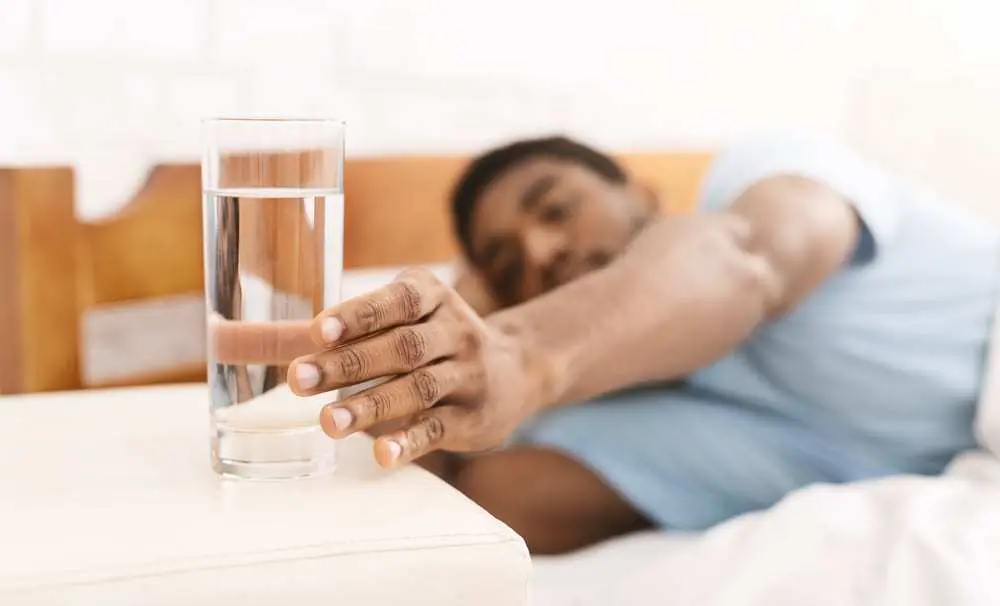Diabetes mellitus, more commonly known as diabetes, is a group of metabolic disorders that affect how your body uses glucose (i.e., blood sugar). A pivotal source of energy for your brain as well as the cells making up your muscles and tissues, healthy and consistent glucose levels keep the body functioning optimally. Unfortunately, most people aren’t aware that they suffer from high blood sugar until they already have diabetes. That may seem harmless, but if it’s ignored, it can cause devastating health issues down the road. Especially if you have a family history of this condition, it’s important to keep an eye out for the signs and symptoms of diabetes. Even if these symptoms are mild, they’re worth mentioning to your doctor.

Signs and Symptoms of Diabetes
You’re often thirsty and make frequent trips to the bathroom.
Are you urinating more than usual? Do you find yourself constantly making trips to the bathroom, especially at night? Your blood sugar could be to blame. If your kidneys are unable to keep up with the excess glucose produced by your body, the glucose will be removed in your urine. In addition, the glucose will drag along fluids from your tissues, so you will also feel thirstier. And as you drink more fluids to quench your thirst, you’ll urinate even more.
You’re losing weight without trying.
When the body isn’t able to effectively use glucose as an energy source, it begins burning fat stores. This may cause sudden, unexpected weight loss. Perhaps surprisingly, people often feel hungrier when they have undiagnosed diabetes as well, because the condition prevents glucose from reaching the body’s cells.
Your vision is blurry.
Has your vision been a bit blurry lately? High blood sugar levels can change the lenses of your eyes by pulling fluid from the retinal tissues. So if you’re planning to schedule an eye exam to update your prescription, keep in mind that it could be a symptom of diabetes. In addition, diabetes can cause the formation of new blood vessels in the retina if left untreated.
You’re getting UTIs or yeast infections.
If your blood sugar is high, your kidneys may struggle to filter it properly, which means more sugar will end up in your urine. When sugar lingers in a warm, moist environment, it can cause a urinary tract infection (UTI) or a yeast infection.
You frequently feel tired or exhausted.
Several aspects of diabetes can cause a tired feeling or exhaustion:
- Dehydration and a lack of good sleep, caused by frequent urination
- Body cells lacking fuel (glucose)
- Inflammation produced by high blood sugar levels
- Hypoglycemia, or low blood sugar
- Mental stress of managing diabetes symptoms
You’ve developed skin discoloration.
Sometimes people develop patches of dark skin due to acanthosis nigricans, which is sometimes caused by insulin resistance due to pre-diabetes or diabetes. It often occurs in neck folds and on knuckles, and it’s sometimes mistaken for a dye or other stain.
Your hands or feet feel numb or tingly.
If left untreated, diabetes can cause nerve damage known as diabetic neuropathy. Commonly affecting the nerves leading to the hands and feet, it can cause numbness or pain.
You have a slow-healing sore or frequent infections.
When your blood sugar levels are high, poor blood flow may hinder your body’s ability to heal. You may notice a cut or sore, especially on your feet, that is infected or taking a long time to heal.
_____
Many of the signs and symptoms of diabetes are related to a variety of conditions, so don’t assume that you have diabetes if you notice one of them. That said, it’s also important that you recognize the risk these symptoms present. People often minimize, rationalize, or overlook their symptoms, allowing them to worsen and only visiting a doctor when they become severe. The goods news is that once you’ve received a diabetes diagnosis, your doctor can help you manage your glucose levels through medications, monitoring tools, lifestyle changes, and other treatment options.
Researchers are always conducting studies to explore new ways to prevent, detect, treat, and cure diabetes. If you’re interested in being part of potentially groundbreaking research, consider participating in a clinical research study. QPS Missouri is looking for new participants for research studies, and you may qualify. Since opening its doors in 1994, QPS Missouri has conducted over 1,000 FDA-regulated studies, paying out over $35 million to local participants. Your local participation could have a global impact, as QPS is an international leader in contract research with facilities in North America, Europe, and Asia. Our mission is to accelerate the development of drugs worldwide by enabling breakthroughs in pharmaceutical innovation. If you would like to join us in this mission, consider enrolling for a clinical research study.
To get started, you simply need to fill out an online application. Within 48 business hours, a recruiting coordinator will contact you for your pre-screening assessment. To learn more, please visit the QPS Missouri website, review the study participation process, or check out our list of FAQ.
